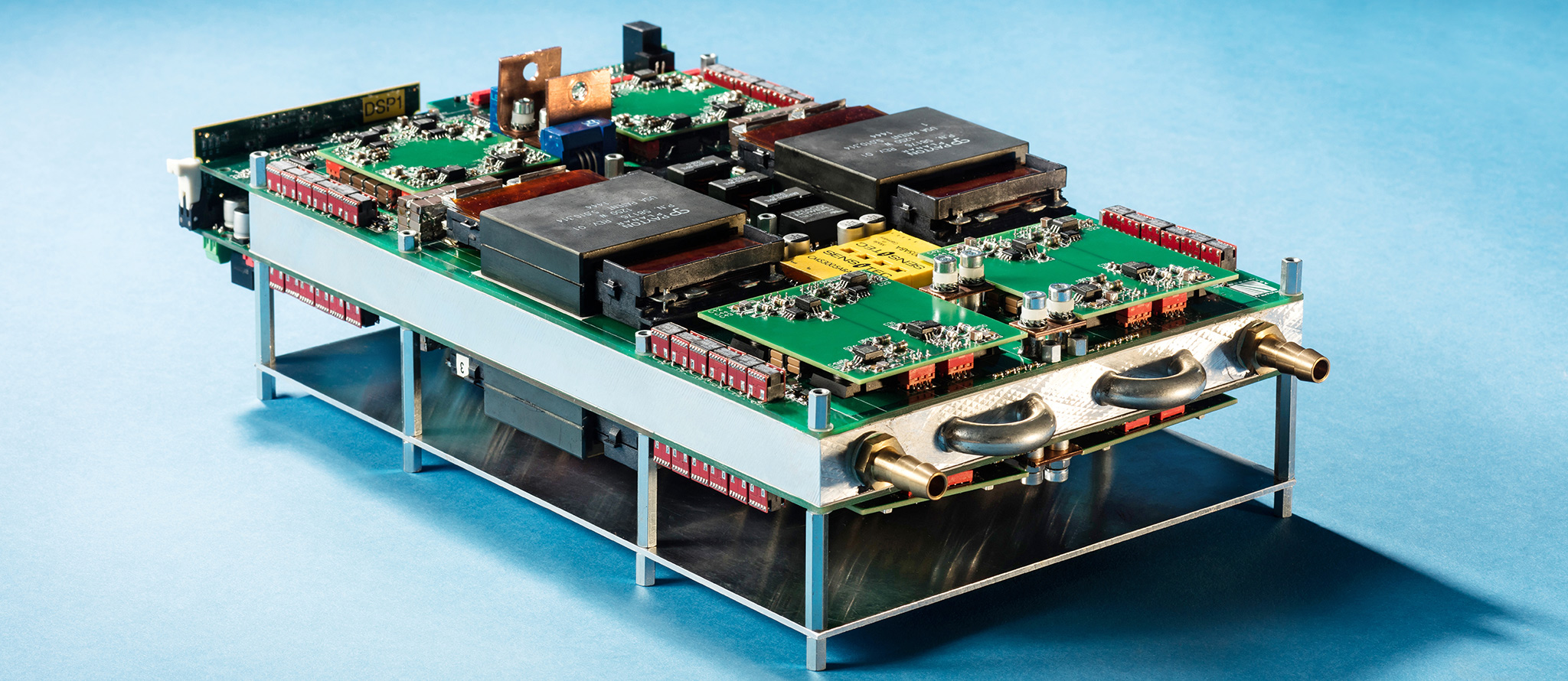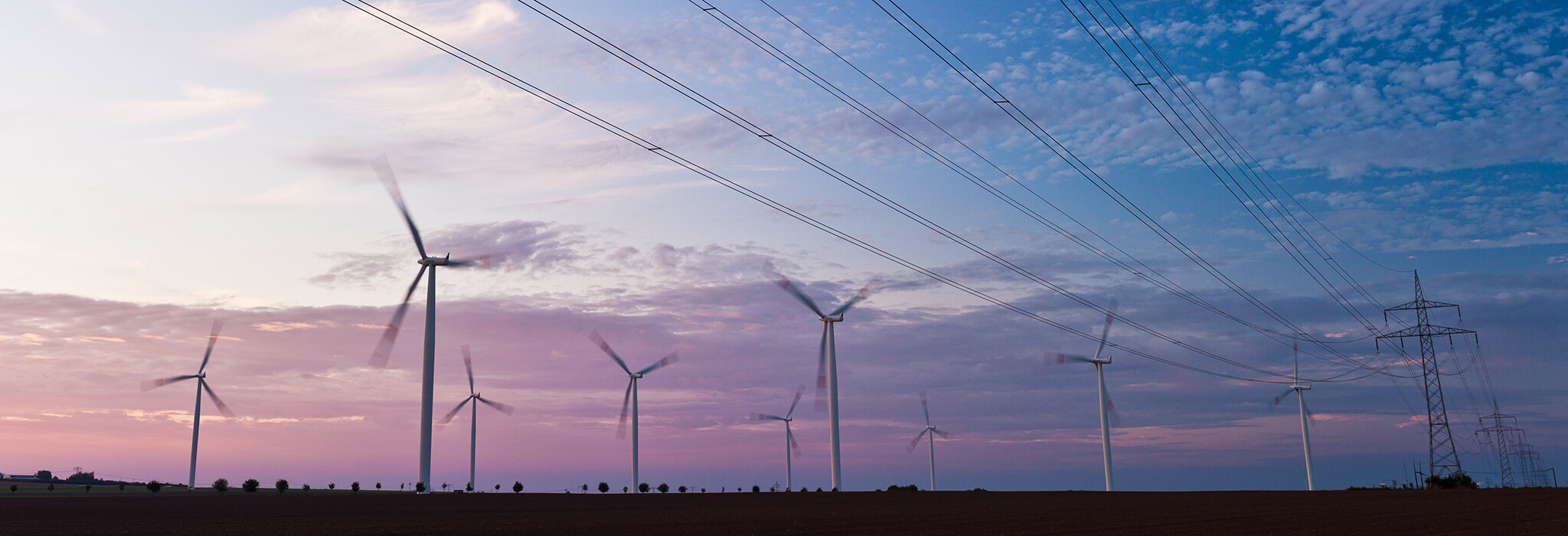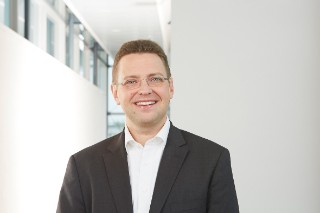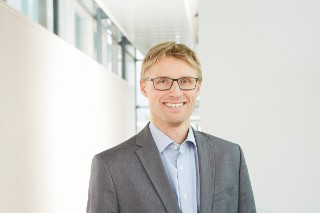Jahr
Year | Titel/Autor:in
Title/Author | Publikationstyp
Publication Type |
|---|
| 2025 |
Cost sharing mechanisms for carbon pricing: What drives support in the housing sector?
Kaestner, Kathrin; Sommer, Stephan; Berneiser, Jessica; Henger, Ralph; Oberst, Christian |
Zeitschriftenaufsatz
Journal Article
|
| 2024 |
A Climate-Neutral Smart City District Supported by Digital Solutions
Elberzhager, Frank; Hupp, Steffen; Polst, Svenja; Stüpfert, Phil; Surmann, Arne |
Aufsatz in Buch
Book Article
|
| 2024 |
Feeling the breeze? Ventilation practices and occupant requirements for mechanical ventilation in residential buildings
Berneiser, Jessica; Auerswald, Sven; Maier, Diana; Gölz, Sebastian; Carbonare, Nicolas; Pflug, Thibault |
Zeitschriftenaufsatz
Journal Article
|
| 2024 |
Technologies for Climate Neutral Districts: Agent Based Energy Management and Blockchain Based Organization for Energy Communities
Surmann, Arne; Utz, Manuel |
Aufsatz in Buch
Book Article
|
| 2023 |
A Voltage Sensitivity Based Equivalent for Active Distribution Networks Containing Grid Forming Converters
Ungerland, Jakob; Poshiya, Nikhilkumar; Biener, Wolfgang; Lens, Hendrik |
Zeitschriftenaufsatz
Journal Article
|
| 2023 |
Stochastic Nonlinear Model Predictive Control for a Switched Photovoltaic Battery System
Groß, Arne; Wille-Haußmann, Bernhard; Wittwer, Christof; Achzet, Benjamin; Diehl, Moritz |
Zeitschriftenaufsatz
Journal Article
|
| 2023 |
Großer Wurf oder leeres Versprechen? Attraktivität und Wirtschaftlichkeit der Gemeinschaftlichen Gebäudeversorgung
Kühnbach, Matthias; Surmann, Arne; Oberfeier, Paula |
Zeitschriftenaufsatz
Journal Article
|
| 2023 |
Evaluation of Equivalent Dynamic Active Distribution Network Models with Individual and Aggregated Consideration of Grid Forming Converters
Ungerland, Jakob; Lens, Hendrik |
Zeitschriftenaufsatz
Journal Article
|
| 2023 |
Ultrafast GaAs MOVPE growth for power electronics
Lackner, David; Urban, Theresa; Lang, Robin; Pellegrino, Carmine; Ohlmann, Jens; Dudek, Volker |
Zeitschriftenaufsatz
Journal Article
|
| 2023 |
Demonstrating Clean Energy Transition Scenarios in Sector-Coupled and Renewable-Based Energy Communities
Maruf, Md Nasimul Islam; Mahmud, Shadman; Pasarín, Iván S.; Giani, Federico; Degrave, Aurélien; Guerra, Carlos Funez; Lopez, Susana; Mesonero, Ivan |
Zeitschriftenaufsatz
Journal Article
|
| 2023 |
Wie agieren Quartiere netzverträglich? Flexibilitätspotenziale der Vor-Ort-Versorgung
Flemming, Sebastian; Bender, Tom; Surmann, Arne |
Zeitschriftenaufsatz
Journal Article
|
| 2023 |
Analysing Grid-Level Effects of Photovoltaic Self-Consumption Using a Stochastic Bottom-up Model of Prosumer Systems
Karalus, Steffen; Köpfer, Benedikt; Guthke, Philipp; Killinger, Sven; Lorenz, Elke |
Zeitschriftenaufsatz
Journal Article
|
| 2023 |
Dynamic pricing and the flexible consumer - Investigating grid and financial implications: A case study for Germany
Stute, Judith; Kühnbach, Matthias |
Zeitschriftenaufsatz
Journal Article
|
| 2023 |
Power Module Design for GaN Transistors Enabling High Switching Speed in Multi-Kilowatt Applications
Wöhrle, Dennis; Burger, Bruno; Ambacher, Oliver |
Zeitschriftenaufsatz
Journal Article
|
| 2022 |
Beyond good faith: Why evidence-based policy is necessary to decarbonize buildings cost-effectively in Germany
Singhal, Puja; Pahle, Michael; Kalkuhl, Matthias; Levesque, Antoine; Sommer, Stephan; Berneiser, Jessica |
Zeitschriftenaufsatz
Journal Article
|
| 2022 |
Tripling land use in West Africa
Berneiser, Jessica; Bingwa, Brendon |
Zeitschriftenaufsatz
Journal Article
|
| 2022 |
Integrating flexibility provision into operation planning: A generic framework to assess potentials and bid prices of end-users
Wanapinit, Natapon; Thomsen, Jessica; Weidlich, Anke |
Zeitschriftenaufsatz
Journal Article
|
| 2022 |
Datenblatt-Wirkungsgrad kein Entscheidungskriterium
Hensel, Andreas; Hans, Franziska Alina; Eyhorn, Steffen |
Zeitschriftenaufsatz
Journal Article
|
| 2022 |
Dekarbonisierung der Industrie - Treiber, Hemmnisse und Handlungsoptionen
Riedel, Franziska Sophie; Vogel, Moritz; Berneiser, Jessica; Kucknat, Johanna |
Zeitschriftenaufsatz
Journal Article
|
| 2022 |
Renewable Energy Communities as Modes of Collective Prosumership: A Multi-Disciplinary Assessment, Part I - Methodology
Chaudhry, Shubhra; Surmann, Arne; Kühnbach, Matthias; Pierie, Frank |
Zeitschriftenaufsatz
Journal Article
|
| 2022 |
Review of Internal Carbon Pricing and the Development of a Decision Process for the Identification of Promising Internal Pricing Methods for an Organisation
Gorbach, Gregor; Kost, Christoph; Pickett, C. |
Zeitschriftenaufsatz
Journal Article
|
| 2022 |
Give Up Flights? Psychological Predictors of Intentions and Policy Support to Reduce Air Travel
Berneiser, Jessica; Becker, Annalena; Loy, Laura |
Zeitschriftenaufsatz
Journal Article
|
| 2022 |
Renewable Energy Communities as Modes of Collective Prosumership: A Multi-Disciplinary Assessment, Part II - Case Study
Chaudhry, Shubhra; Surmann, Arne; Kühnbach, Matthias; Pierie, Frank |
Zeitschriftenaufsatz
Journal Article
|
| 2022 |
Lohnt sich die österreichische Energiegemeinschaft auch für Deutschland? Eine Fallstudie
Surmann, Arne; Erge, Thomas; Kühnbach, Matthias; Kohrs, Robert |
Zeitschriftenaufsatz
Journal Article
|
| 2022 |
Comparing the Energy System of a Facility with Uncertainty about Future Internal Carbon Prices and Energy Carrier Costs Using Deterministic Optimisation and Two-Stage Stochastic Programming
Gorbach, Oliver Gregor; Thomsen, Jessica |
Zeitschriftenaufsatz
Journal Article
|
| 2022 |
Modeling of Photovoltaic Inverter Losses for Reactive Power Provision
Grab, Robin; Hans, Franziska Alina; Rojas Flores, Mariano Ivan; Schmidt, Heribert; Rogalla, Sönke; Engel, Bernd |
Zeitschriftenaufsatz
Journal Article
|
| 2022 |
Find the balance: How do electricity tariffs incentivize different system services from demand response?
Wanapinit, Natapon; Thomsen, Jessica; Weidlich, Anke |
Zeitschriftenaufsatz
Journal Article
|
| 2021 |
Comparison of Short-term Electrical Load Forecasting Methods for Different Building Types
Groß, Arne; Lenders, A.; Schwenker, F.; Braun, D.; Fischer, David |
Zeitschriftenaufsatz
Journal Article
|
| 2021 |
Effect of the Foresight Horizon on Computation Time and Results using a Regional Energy Systems Optimization Model
Thomsen, Jessica; Saad Hussein, Noha; Dolderer, A.; Kost, Christoph |
Zeitschriftenaufsatz
Journal Article
|
| 2021 |
An MILP Model for Evaluating the Optimal Operation and Flexibility Potential of End-Users
Wanapinit, Natapon; Thomsen, Jessica; Kost, Christoph; Weidlich, A. |
Zeitschriftenaufsatz
Journal Article
|
| 2021 |
Multidimensional Criticality Assessment of Metal Requirements for Lithium-ion Batteries in Electric Vehicles and Stationary Storage Applications in Germany by 2050
Bongartz, L.; Shammugam, Shivenes; Gervais, Estelle; Schlegl, Thomas |
Zeitschriftenaufsatz
Journal Article
|
| 2021 |
Economic Evaluation of Operation Strategies for Battery Systems in Football Stadiums
Berg, Kjersti; Resch, Matthias; Weniger, Thaddäus; Simonsen, Stig |
Zeitschriftenaufsatz
Journal Article
|
| 2021 |
Synergies Between Renewable Energy and Flexibility Investments: A Case of a Medium-Sized Industry
Wanapinit, Natapon; Thomsen, Jessica |
Zeitschriftenaufsatz
Journal Article
|
| 2021 |
E-Mobilität im Carsharing und in Fuhrparks
Stryi-Hipp, Gerhard; Sprengeler, Matti; Nguyen, P.; Popova, R.; Landfester, G. |
Aufsatz in Buch
Book Article
|
| 2021 |
Participative Renewable Energy Community - How Blockchain-Based Governance Enables a German Interpretation of RED II
Chantrel, S.; Surmann, Arne; Erge, Thomas; Thomsen, Jessica |
Zeitschriftenaufsatz
Journal Article
|
| 2021 |
Barriers to internal carbon pricing in German companies
Riedel, F.; Gorbach, Gregor; Kost, Christoph |
Zeitschriftenaufsatz
Journal Article
|
| 2021 |
A Strategy to Increase the Resource Efficiency of Renewable Energy Technologies
Henning, Hans-Martin; Shammugam, Shivenes; Gervais, Estelle; Schlegl, Thomas |
Aufsatz in Buch
Book Article
|
| 2021 |
Optimized Strategic Planning of Future Norwegian Low-Voltage Networks with a Genetic Algorithm Applying Empirical Electric Vehicle Charging Data
Wruk, J.; Cibis, K.; Resch, Matthias; Saele, H.; Zdrallek, M. |
Zeitschriftenaufsatz
Journal Article
|
| 2021 |
Microgrid Systems: Towards a Technical Performance Assessment Frame
Marchand, Sophie; Monsalve, Cristian; Reimann, Thorsten; Heckmann, Wolfram; Ungerland, Jakob; Lauer, Hagen; Ruhe, Stephan; Krauß, Christoph |
Zeitschriftenaufsatz
Journal Article
|
| 2021 |
Modeling of Persistence, Non-acceptance and Sufficiency in Long-term Energy Scenarios for Germany
Kost, Christoph; Brandes, Julian; Senkpiel, Charlotte; Sterchele, Philip; Wrede, Daniel; Henning, Hans-Martin |
Zeitschriftenaufsatz
Journal Article
|
| 2021 |
Techno-Economic Assessment of Flexibility Options Versus Grid Expansion in Distribution Grids
Resch, Matthias; Bühler, J.; Schachler, B.; Sumper, A. |
Zeitschriftenaufsatz
Journal Article
|
| 2021 |
Getting Prices for Prosumers Right? Incentivizing Investment and Operation of Small-scale PV-Battery Storage Systems Through Prices, Charges and Levies
Thomsen, Jessica; Weber, C. |
Zeitschriftenaufsatz
Journal Article
|
| 2021 |
A method of optimizing and spatially distributing heating systems by coupling an urban energy simulation platform and an energy system model
Steingrube, Annette; Bao, K.; Wieland, Stefan; Lalama, A.; Kabiro, P.; Coors, V.; Schröter, B. |
Zeitschriftenaufsatz
Journal Article
|
| 2021 |
Open-source simulation of the long-term diffusion of alternative passenger cars on the basis of investment decisions of private persons
Senkpiel, Charlotte; Berneiser, Jessica; Baumann, D. |
Zeitschriftenaufsatz
Journal Article
|
| 2021 |
Raw Material Needs for the Large-Scale Deployment of Photovoltaics - Effects of Innovation-Driven Roadmaps on Material constraints until 2050
Gervais, Estelle; Shammugam, Shivenes; Friedrich, Lorenz; Schlegl, Thomas |
Zeitschriftenaufsatz
Journal Article
|
| 2021 |
The role of norms and collective efficacy for the importance of techno-economic vehicle attributes in Germany
Berneiser, Jessica; Senkpiel, Charlotte; Steingrube, Annette; Gölz, Sebastian |
Zeitschriftenaufsatz
Journal Article
|
| 2021 |
Impact of Internal Carbon Prices on the Energy System of an Organisation's Facilities in Germany, Japan and the United Kingdom Compared to Potential External Carbon Prices
Gorbach, Gregor; Saad Hussein, Noha; Thomsen, Jessica |
Zeitschriftenaufsatz
Journal Article
|
| 2020 |
Assessment of flexible electric vehicle charging in a sector coupling energy system model - Modelling approach and case study
Sterchele, Philip; Kersten, K.; Palzer, Andreas; Hentschel, J.; Henning, Hans-Martin |
Zeitschriftenaufsatz
Journal Article
|
| 2020 |
6-W Optical Power Link with Integrated Optical Data Transmission
Helmers, Henning; Armbruster, Cornelius; Ravenstein, Moritz von; Derix, David; Schöner, Christian |
Zeitschriftenaufsatz
Journal Article
|
| 2020 |
Die Energiewende und der Einfluss Gesellschaftlicher Verhaltensweisen
Henning, Hans-Martin |
Zeitschriftenaufsatz
Journal Article
|
| 2020 |
Adjustment of the Life Cycle Inventory in Life Cycle Assessment for the Flexible Integration into Energy Systems Analysis
Betten, T.; Shammugam, S.; Graf, Roberta |
Zeitschriftenaufsatz
Journal Article
|
| 2020 |
Systemic Evaluation of Effects of Regional Self-Supply Targets on the German Electricity System Using Consistent Scenarios and System Optimization
Senkpiel, Charlotte; Hauser, Wolfgang |
Zeitschriftenaufsatz
Journal Article
|
| 2020 |
"Die Versorgungssicherheit ist sehr hoch"
Henning, Hans-Martin; Lehmann, K. |
Zeitschriftenaufsatz
Journal Article
|
| 2020 |
Die Rolle des Stromsystems in Transformationspfaden zur Klimaneutralität
Kost, Christoph; Brandes, Julian; Haun, Markus; Henning, Hans-Martin |
Zeitschriftenaufsatz
Journal Article
|
| 2020 |
Stochastic model predictive control of photovoltaic battery systems using a probabilistic forecast model
Groß, Arne; Wittwer, Christof; Diehl, Moritz |
Zeitschriftenaufsatz
Journal Article
|
| 2020 |
Towards 3D-Lithium Ion Microbatteries Based on Silicon/Graphite Blend Anodes Using a Dispenser Printing technique
Drews, Mathias; Tepner, Sebastian; Haberzettl, P.; Gentischer, Harald; Beichel, W.; Breitwieser, Matthias; Vierrath, Severin; Biro, Daniel |
Zeitschriftenaufsatz
Journal Article
|
| 2020 |
From residential electric load profiles to flexibility profiles
Fischer, David; Surmann, Arne; Biener, Wolfgang; Selinger-Lutz, Oliver |
Zeitschriftenaufsatz
Journal Article
|
| 2019 |
Die Energiewende erfolgreich steuern
Henning, Hans-Martin; Pittel, K. |
Zeitschriftenaufsatz
Journal Article
|
| 2019 |
Electric Vehicles' Impacts on Residential Electric Local Profiles - A Stochastic Modelling Approach Considering Socio-Economic, Behavioural and Spatial Factors
Fischer, David; Harbrecht, A.; Surmann, Arne; McKenna, Russell |
Zeitschriftenaufsatz
Journal Article
|
| 2019 |
An analytical approach for estimating the global horizontal from the global tilted irradiance
Halilovic, S.; Bright, Jamie M.; Herzberg, Wiebke; Killinger, Sven |
Zeitschriftenaufsatz
Journal Article
|
| 2019 |
Applications of SiC Devices
Kranzer, Dirk; Hensel, Andreas; Thoma, Jürgen; Armbruster, Cornelius; Hercegfi, Patrick; Schönberger, Stefan |
Aufsatz in Buch
Book Article
|
| 2019 |
Modeling Investment Decisions in Renewable Energy Technologies: An Introduction to Simulating Technology Diffusion
Senkpiel, Charlotte; Berneiser, Jessica; Steingrube, Annette; Biener, Wolfgang; Gölz, Sebastian |
Zeitschriftenaufsatz
Journal Article
|
| 2019 |
Coal phase out, energy efficiency, and electricity imports: Key elements to realize the energy transformation
Kost, Christoph; Palzer, Andreas; Sterchele, Philip; Stephanos, Cyril; Hartmann, Niklas; Henning, Hans-Martin |
Zeitschriftenaufsatz
Journal Article
|
| 2019 |
Data Article: Distributed PV Power Data for Three Cities in Australia
Bright, Jamie M.; Killinger, Sven; Engerer, N. |
Zeitschriftenaufsatz
Journal Article
|
| 2019 |
Bayesian parameterisation of a regional photovoltaic model - Application to forecasting
Saint-Drenan, Y.-M.; Vogt, S.; Killinger, S.; Bright, J.M.; Fritz, R.; Potthast, R. |
Zeitschriftenaufsatz
Journal Article
|
| 2019 |
Ist die Energiewende noch zu retten?
Henning, Hans-Martin; Umbach, E. |
Zeitschriftenaufsatz
Journal Article
|
| 2018 |
Power-to-gas in a smart city context - influence of network restrictions and possible solutions using on-site storage and model predictive controls
Fischer, David; Kaufmann, F.; Selinger-Lutz, Oliver; Voglstätter, Christopher |
Zeitschriftenaufsatz
Journal Article
|
| 2018 |
Flexibility assessment of a pool of residential micro combined heat and power systems
Selinger-Lutz, Oliver; Pratidino, G.; Hollinger, Raphael; Fischer, David; Koch, B.; Wittwer, Christof |
Zeitschriftenaufsatz
Journal Article
|
| 2018 |
PV-Lichtbögen sicher erkennen
Eger, F. |
Zeitschriftenaufsatz
Journal Article
|
| 2018 |
Real live demonstration of MPC for a power-to-gas plant
Fischer, David; Kaufmann, F.; Hollinger, Raphael; Voglstätter, Christopher |
Zeitschriftenaufsatz
Journal Article
|
| 2018 |
Sektorenkopplung und Systemintegration. The Next Big Thing für die Energiewende
Rosenfeld, Georg; Henning, Hans-Martin |
Zeitschriftenaufsatz
Journal Article
|
| 2015 |
Towards a Better Understanding of Harmonics and Power Electronics
Rogalla, Sönke; Ackermann, Florian; Bihler, Nicolas; Dötter, Gregor; Singer, Roland; Wolf, E. |
Zeitschriftenaufsatz
Journal Article
|















